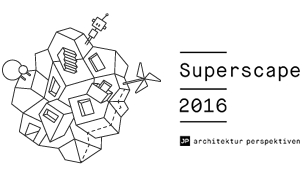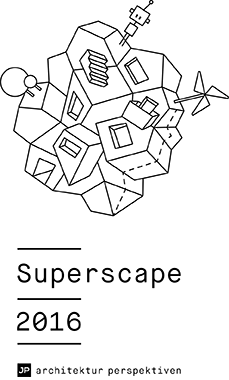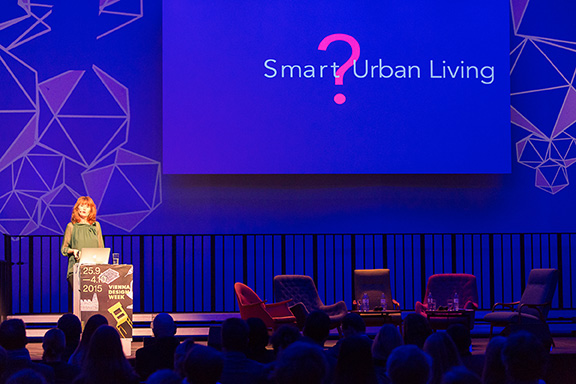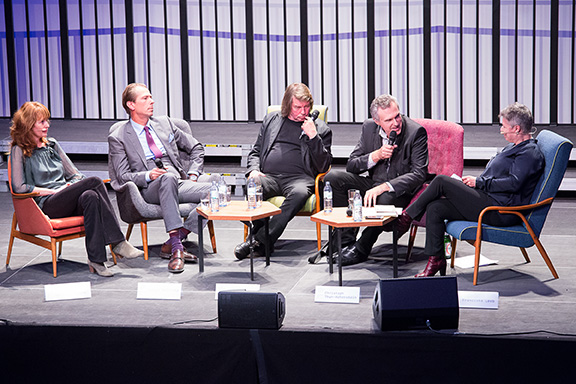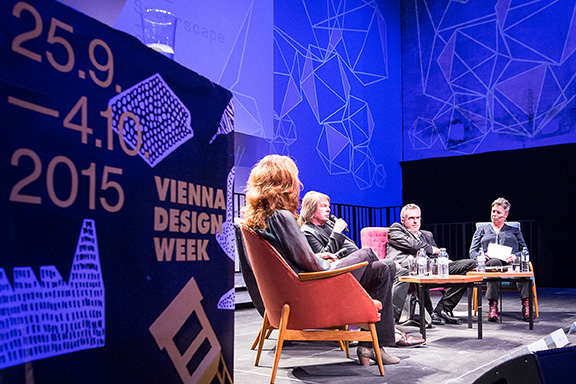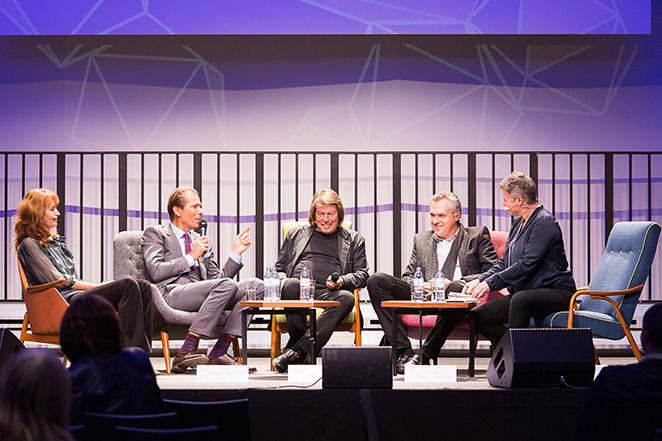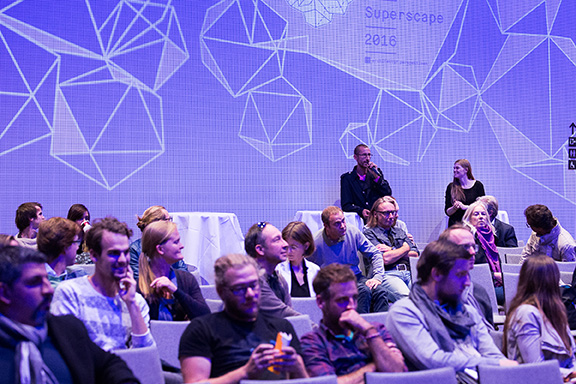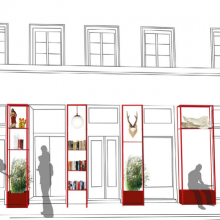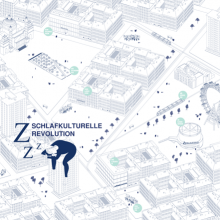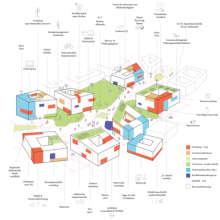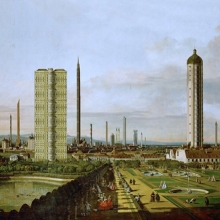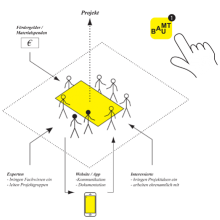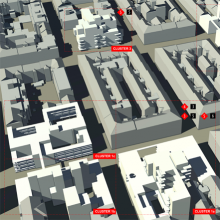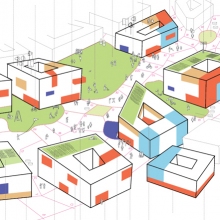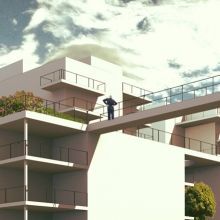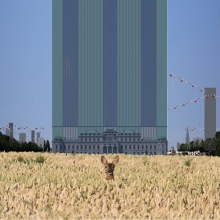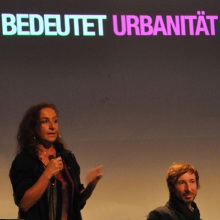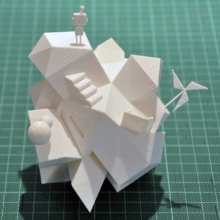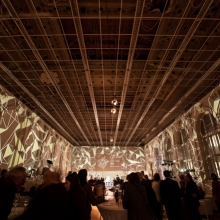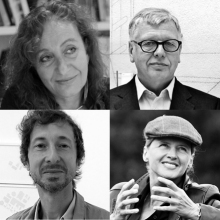2015
The first event launching the 2016 Superscape at brotfabrik wien on September 28 presented the award’s thematic focus, with subsequent discussion of questions arising from that focus, in order to provide visionary ideas about how to live in tomorrow’s cities.
The first submission phase is now open until March 7, 2016.
Detailed information on the eligibility requirements, the application procedure and other relevant points can be found in the Call for Entries for Superscape 2016
Superscape 2016
The Superscape 2016 title Future Urban Living – Functional Reduction with Maximum Space Gain opens a field for visionary design suggestions and space concepts which focus on building the urban residential space of the future. Innovative solutions are sought, combining high-quality residences with great space efficiency and the greatest functional flexibility possible. In this context, the changing needs and requirements of urban dwellers for their residences during the next 50 years shall be taken into consideration. The goal is to formulate forward-thinking concepts, to question familiar residential patterns and to risk experiments in design, but also to consider their feasibility, and to check the possibility of realising them within existing building substance and existing urban structures. Furthermore, the subject is highly relevant with regard to increasing mobility and urban traffic flow within the context of urban planning.
A Retrospective
Keynote: Oona Horx-Strathern
Panel discussion with Christoph Thun-Hohenstein (Director of MAK and initiator of the Vienna Biennial, jury member), Daniel Jelitzka (Superscape initiator and organiser) and Klaus Kada (architect and jury member)
In her keynote address, the futurologist Oona Horx-Strathern reported on life inside the “future evolution house” developed by her and her husband, located in Vienna’s Grinzing district.
During the subsequent panel discussion, the initiator and organiser of the award, Daniel Jelitzka, described the fundamental issue of Superscape 2016 as follows: “How can I manage to concentrate quality in a small space, using additional functions in common areas outside the space, so that I can enjoy the quality of a large apartment despite a small space?”
The complexity of answering this question was demonstrated by the panel members: futurologist Oona Horx-Strathern emphasised the great relevance of social intelligence in planning residential spaces. She claims that it is not important to make future living spaces “smart” by using technology, but rather that the movement and communication patterns of a space’s inhabitants must be taken into account – and as a consequence, technology must be employed in a socially intelligent manner.
Christoph Thun-Hohenstein adopted this perspective, warning of a “city of algorithms” in which technology becomes more important than social aspects. He also pointed out the importance of the human ecological footprint, which must be reduced during the coming years, as well as demographic changes in the population. Furthermore, the concatenation of residential space and public space must be kept in mind.
“Space is the most precious thing human beings have. That is why we must be able to treat space especially well,” Klaus Kada summed up the discussion. As a résumé of the conversation, the panel members addressed potential applicants for the award: interdisciplinary work and holistic approaches are the basis of successful future residential concepts. According to the panel, this will soon dominate architectural practice as well, since it is the only way in which all aspects of tomorrow’s homes can be taken into account.
Credits: Martin Wacht
